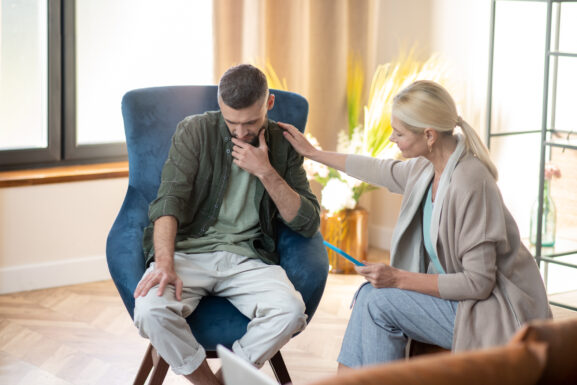Rehabilitation Programs Near You: Exploring the Options
Rehabilitation Programs Near You: Exploring the Options
Are you or a loved one searching for "rehabilitation programs near me"? Whether the need stems from addiction, injury, or neurological conditions, finding the right rehabilitation programs near you can profoundly impact recovery. This article aims to provide you with comprehensive information regarding various rehabilitation programs, helping you make informed decisions on your path to recovery.
Understanding Rehabilitation
Rehabilitation programs are designed to help individuals regain maximum self-sufficiency, health, and well-being post-injury, illness, or substance dependency. These programs offer a structured and supportive environment promoting holistic recovery, incorporating physical, psychological, and social aspects.
Types of Rehabilitation Programs
- Addiction Rehabilitation
- Physical Rehabilitation
- Neurological Rehabilitation
- Cardiac Rehabilitation
- Occupational Therapy
Addiction Rehabilitation Programs
Addiction is a challenging and complex disease that often requires professional intervention for sustainable recovery. Addiction rehabilitation programs are structured through various phases, enabling individuals to understand and overcome dependency on substances such as alcohol, drugs, or prescription medications.
Components of Addiction Rehabilitation
- Detoxification: The initial phase focuses on cleansing the body from addictive substances.
- Counseling and Therapy: Individual and group therapy sessions designed to address the psychological factors of addiction.
- Support Groups: Peer-led groups like Alcoholics Anonymous (AA) or Narcotics Anonymous (NA) offer long-term support.
- Aftercare: Ongoing support to prevent relapse through continued therapy and participation in support groups.
Finding Addiction Rehabilitation Programs Near You
Searching for "rehabilitation programs near me" can yield various options, but consider the following when selecting a program:
- Accommodations: Residential or outpatient care based on your needs.
- Accreditation: Ensure programs are certified by reputable organizations (e.g., CARF).
- Evidence-Based Treatment: Programs should offer treatments backed by scientific research.
Physical Rehabilitation Programs
Physical rehabilitation programs focus on restoring physical function, mobility, and strength to individuals who have suffered injuries, undergone surgeries, or are dealing with chronic diseases like arthritis.
Physical Therapy Components
- Assessment: Initial evaluation by a certified physical therapist.
- Exercise Regimens: Customized routines aimed at strengthening muscles and enhancing mobility.
- Manual Therapy: Techniques like massage, manipulation, and mobilization.
- Educational Programs: Guidance on maintaining physical health and preventing future injuries.
Why Choose a Local Physical Rehabilitation Program?
Choosing a local rehabilitation program ensures convenience in accessing treatment, frequent check-ins, and quicker response to emergencies. Additionally, local therapists are often familiar with community resources that can bolster your recovery journey.
Neurological Rehabilitation Programs
Neurological rehabilitation programs are crucial for individuals recovering from strokes, traumatic brain injuries (TBI), or neurological diseases like Parkinson’s and Multiple Sclerosis (MS).
Program Elements
- Multidisciplinary Approach: Incorporating neurologists, physiotherapists, occupational therapists, and speech therapists.
- Therapeutic Interventions: Cognitive therapy, speech therapy, and motor skill training.
- Assistive Technologies: Advanced tools and devices to aid in recovery.
Discovering Neurological Rehabilitation Programs Near You
Finding specialized neurological rehabilitation programs within your vicinity can enhance patient comfort and family involvement in the recovery process. Search for clinics or hospitals with a specialty in neurological care. Ensure that the program is equipped with advanced technological support and offers personalized treatment plans.
Cardiac Rehabilitation Programs
Cardiac rehabilitation programs are developed for individuals recovering from heart attacks, heart surgeries, or those managing chronic heart diseases.
Core Components
- Medical Evaluation: Continuous assessment and monitoring.
- Physical Activity: Tailored exercise programs to improve cardiovascular health.
- Education: Lifestyle counseling focused on diet, exercise, and medication adherence.
- Psychological Support: Counseling to aid mental health recovery post-cardiac events.
Why Local Cardiac Rehabilitation is Beneficial
Cardiac rehabilitation programs near you would facilitate routine visits, making it easier to balance treatment with daily commitments. These programs also foster a community feel, which is essential for emotional support.
Occupational Therapy Programs
Occupational therapy (OT) helps individuals of all ages with physical, sensory, or cognitive problems regain independence in their daily lives.
OT Program Components
- Evaluation: Determining the individual's abilities and challenges.
- Intervention Plan: Structured activities tailored to improve the person’s ability to perform daily tasks.
- Therapeutic Use of Occupations and Activities: Engaging in meaningful activities to enhance functional capabilities.
- Supportive Tools: Introduction to adaptive devices to aid daily living.
Benefits of Local Occupational Therapy Programs
Choosing occupational rehabilitation programs near you allows for continuity and ease of access, ensuring that interventions can be frequent and consistent.
Conclusion
Rehabilitation is a critical step towards regaining health and functionality. Whether you need addiction rehabilitation, physical therapy, neurological rehab, cardiac care, or occupational therapy, numerous local resources are available. By searching for "rehabilitation programs near me," you can find facilities that provide the comprehensive care needed for recovery. Always consider accreditation, evidence-based treatments, and community resources when selecting the right program for you or your loved one.
Frequently Asked Questions (FAQs)
- What types of conditions can rehabilitation programs treat?
Rehabilitation programs can treat addictions, physical injuries, neurological conditions, cardiac diseases, and developmental disorders. - How do I choose the best rehabilitation program near me?
Consider the type of rehabilitation you need, the program’s accreditation, evidence-based treatments, location convenience, and personal testimonials. - What is the difference between inpatient and outpatient rehabilitation?
Inpatient rehab involves staying at a facility, whereas outpatient rehab allows you to live at home and attend scheduled sessions.
- How long do rehabilitation programs typically last?
Program duration varies based on individual conditions and program type but can range from a few weeks to several months. - Do rehabilitation programs accept insurance?
Many rehabilitation programs accept insurance, but it's crucial to verify coverage specifics with your provider. - What qualifications should I look for in rehabilitation therapists?
Look for certifications, years of experience, and specialization in the relevant field.
- Is family involvement encouraged in rehabilitation programs?
Yes, including family can enhance support, understanding, and encouragement during the rehabilitation process. - Can I receive rehabilitation at home?
Some rehabilitation services offer home-based therapy for individuals who cannot travel to facilities. - How effective are rehabilitation programs?
Effectiveness varies but is generally higher with personalized, evidence-based programs and active participation.
- What resources are available to help cover rehabilitation costs?
Aside from insurance, community resources and non-profit organizations may offer financial assistance.
Reputable Medical Sources:
- Mayo Clinic
- Cleveland Clinic
- National Institutes of Health (NIH)
- American Physical Therapy Association (APTA)
- Substance Abuse and Mental Health Services Administration (SAMHSA)
The information on this site is intended for general informational purposes only and is not a substitute for professional medical advice, diagnosis, or treatment. Medical knowledge is continuously evolving, so the content here may not always be current, complete, or comprehensive. Always consult your healthcare provider before starting or altering any treatment. In the event of a medical emergency, contact your doctor or dial 911 right away.



